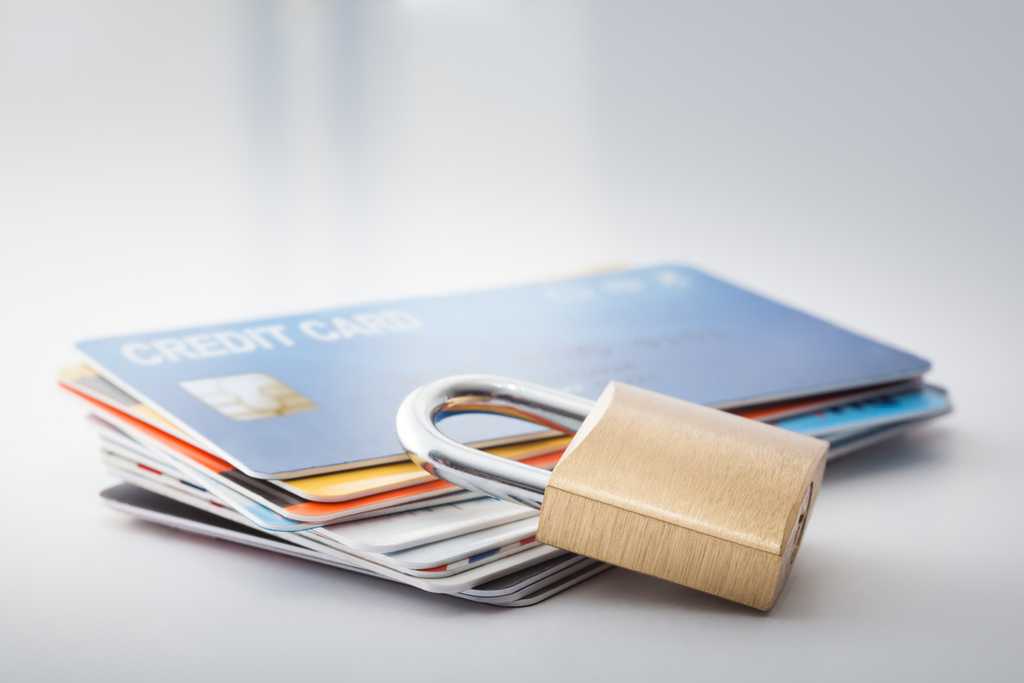What is a secured credit card?
Secured credit cards look the same as any traditional credit card and can be used to make purchases and even earn rewards in some cases. The biggest difference is that secured cards require the payment of a refundable security deposit before your account can be opened.
With unsecured (also called traditional) cards, the monthly credit limit might be determined based on information like your credit score, credit reports and what you submitted in your application. Secured cards don’t use this same process. Generally, the credit limit on secured cards matches a security deposit that factors in your credit information. That means that secured cards are available to applicants with poor or bad credit.
While there’s no difference in how unsecured and secured cards function aside from the deposit, secured cards are intended to help people with poor or limited credit history build or rebuild their credit score in order to gain access to other forms of credit.
How do secured credit cards work?
Secured cards are offered by many credit card issuers such as Chime®, Discover, Citi and Capital One as an alternative system to help people with a limited or poor credit history build credit.
Secured card users still need to make regular payments and can incur interest if they don’t pay their balance in full. The security deposit is only used if the cardholder defaults on their account. But after a year of responsible use, many secured card users find that they can qualify for a traditional, unsecured account. This allows them to close their secured card account and receive their deposit back.
Credit limits on secured credit cards
The deposit system may also help cardholders manage spending habits. In general, the cash deposit, which typically ranges from $200 to $2,500, plays a role in the amount of borrowing power cardholders have on a secured credit card. For example, many issuers will match the cash deposit exactly to the monthly credit limit.
Some issuers also allow cardholders to increase their credit limit by paying a larger deposit either before or after they’ve activated the credit card. To attempt to increase your credit limit, you would need to contact the issuer or make a request via their online portal. Alternatively, issuers may reward consecutive on-time payments with an increase in credit limit at no additional deposit depending on the issuer.
Deposits on secured credit cards
Card issuers may collect the security deposit on a secured credit card if a cardholder has defaulted or has missed too many payments. However, if the cardholder cancels the card in good standing or upgrades to a traditional card, the deposit will be returned in full.
Transactions, late payments and more on secured credit cards
Once the cash deposit is made, secured credit cards operate the same as any credit card. Secured cards can be used anywhere that accepts credit cards, including transactions on the Internet. Like any other credit card, secured credit card users receive monthly bills, and can incur interest. Late payments on a secured card can also cause harm to your credit score. But as long as you make your payments on time, issuers will report positive information to the major credit bureaus the same as they would for an unsecured card.
How secured credit cards help build credit
Using secured cards does not always hurt your credit. In fact, secured cards exist to help your credit so that you can qualify for other loans that you need. That’s why the approval process for a secured credit card is geared toward those with fair, poor, limited or no credit history. But just because you have a secured credit card does not mean you are guaranteed to improve your credit.
To build your credit score with a secured credit card, start by following three basic credit-building fundamentals: making payments on time, keeping the balance within reason and doing your best to clear out debt.
Make payments on time
As with any card, the later you pay, the worse it is for your credit score. Late payments will definitely hurt your score and could build debt due to the high interest rates attached to most secured credit cards. With nearly all cards, your payment history is reported to the three major consumer credit bureaus each month.
Keep the balance within reasonable limits
Secured credit cards should be used only a few times a month on small purchases. A good rule of thumb is to never exceed the credit limit by more than 30%, though it’s best to stay under 10%, as this will help your credit score by lowering your credit utilization ratio. Additionally, cardholders should factor in any fees charged, as those fees will count towards your credit limit. And remember, your account balances will also be reported to the consumer credit bureaus each month.
Avoid and clear out debt
The low credit limit is there to help you gain the trust of financial institutions, but you can also use the limit as a threshold to keep you accountable. You don’t have to spend under your limit every month, but buy in moderation. As mentioned earlier, avoid exceeding your limit by over 30%, and shoot for just 10% or less over the limit.
Secured credit cards should help put a buffer between you and the cash you earn to help you pay off any previously incurred debt. If all goes well, you’ll be on your way to improving your credit score, increasing your odds as a candidate for any loan you might want in the future.
Secured credit cards vs. unsecured credit cards
There are two major differences you’d find using a secured and an unsecured credit card. First, with a standard, unsecured credit card, no deposit is required to borrow money, while secured credit cards do require an initial deposit to use credit. Second, unsecured cards can have much higher credit limits than secured cards, meaning there’s usually a lesser spending limit for secured cards.
Perhaps the biggest caveat to secured cards are the fees. Like many traditional credit cards, many secured credit cards tack on an annual fee (usually $50 or less), but additional fees can also apply.
The interest rates on secured cards are sometimes, but not always, higher than that on unsecured cards. The average APR on secured credit cards was 18.3% as of April 2022, compared to the 13.1% APR on average for those with excellent credit. Those with fair credit tallied an average APR of 23.05%. When comparing credit cards, the takeaway is that unless you have a good or excellent credit score, it’s generally recommended to get a secured card rather than a high-fee unsecured card.
Secured cards can be a great alternative if you’re looking to improve credit and can’t get a traditional card, but you probably don’t want to use secured cards for your whole life. Over time and with consistent on-time payments, secured cardholders may implore their providers to either seek higher credit limits on the existing secured card or transition to an unsecured credit card.
How to get a secured credit card
To get a secured credit card, you apply the same way you would for a traditional credit card. After you submit an application for a secured credit card, issuers will typically view your credit score, which is an assessment of the applicant’s credit risk. Fintech companies like Chime have simplified the process to make it as painless as possible.
Secured credit cards may impose annual fees and other charges, such as activation fees, credit increase fees and monthly maintenance fees. It’s worth examining these and any other fees before signing up, as they do take a portion of your available credit.
As soon as you notice improvements to your credit score, contact your issuer and ask for ways to transition your account to an unsecured card, and receive your deposit back.
How much should I deposit on a secured credit card?
Typically, the deposit made on a secured credit card will equal the credit limit you receive on the card. There are many different secured cards out there with varying minimum security deposit requirements, but you can always choose to deposit more to receive a higher credit limit. What should be taken into account before you apply for a secured card is how much you’re willing to pay for a deposit and what will work best for your financial situation.
After you apply, the card issuer will provide a timeframe for which you are responsible for paying the deposit. You’ll have to pay the deposit within the timespan or risk the account being closed.
After opening your account, you may be able to increase the deposit and credit limit depending on the terms of the card. It’s important to check either with the company’s customer service or online to find out if you can increase the deposit after the account is opened.
Chime is a financial technology company, not a bank. Banking services provided by The Bancorp Bank, N.A. or Stride Bank, N.A., Members FDIC.

